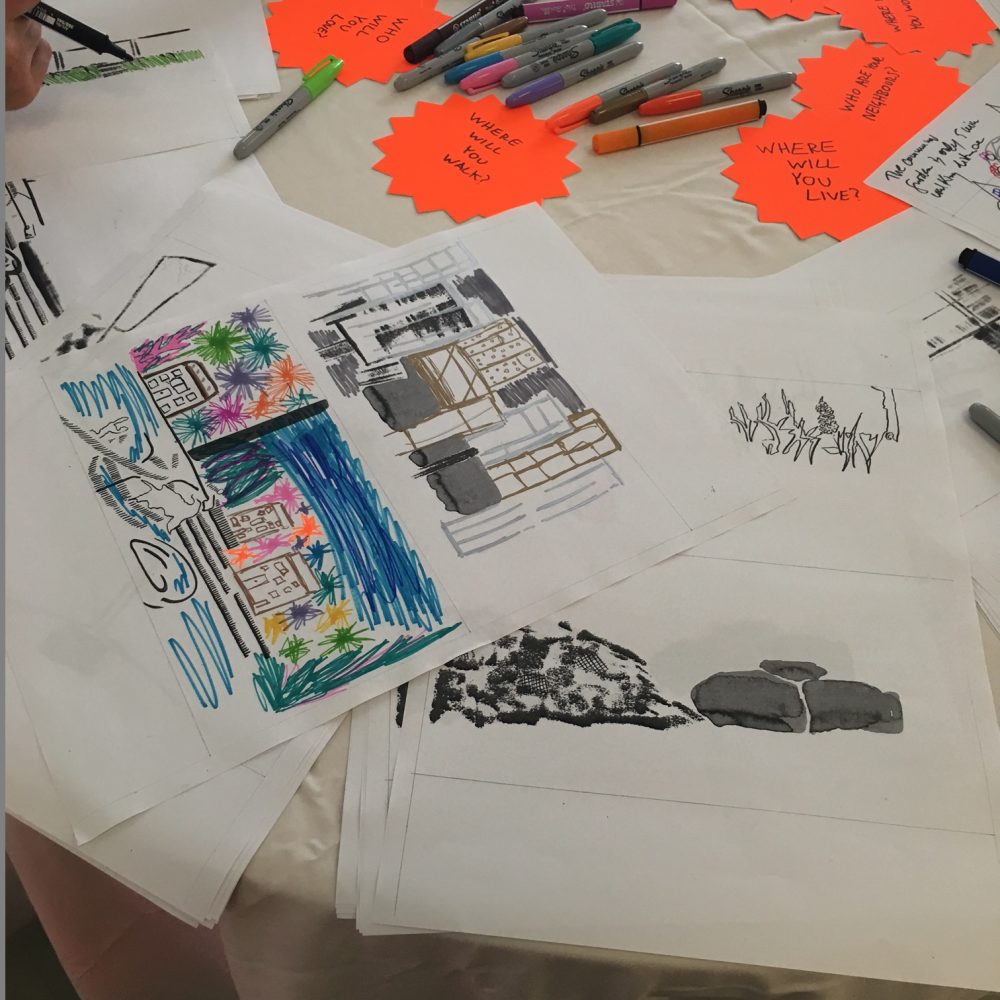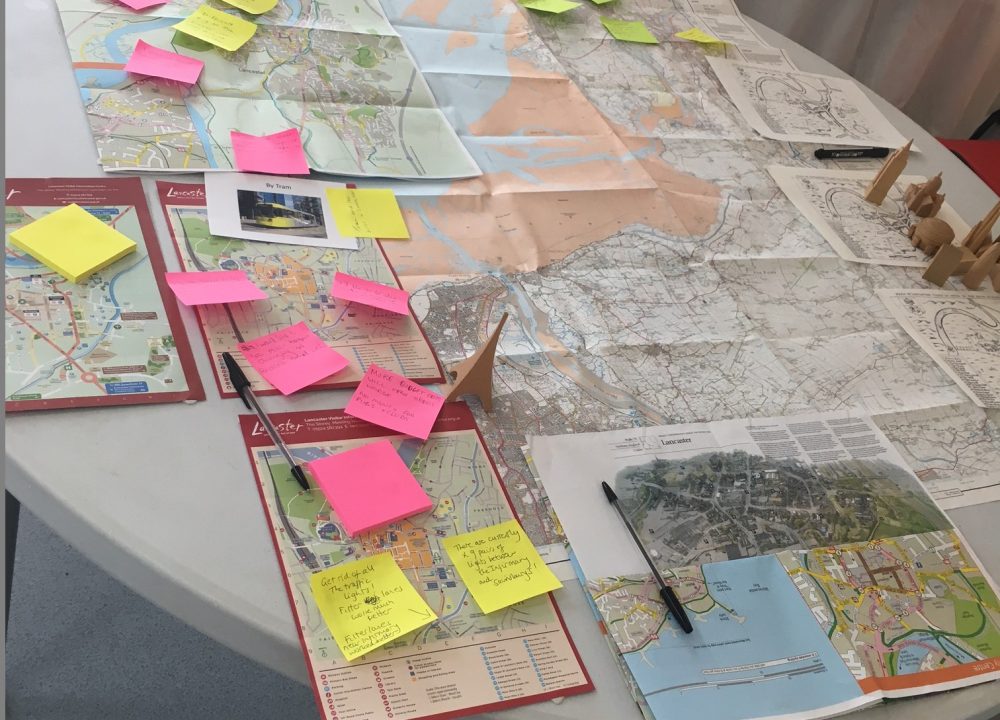Utopias in the City – Lancaster Life 2051

The idea of Utopia is one which many are unfamiliar with. What does it mean to you, what is your Utopia? It’s a difficult question to answer.
The desire for a better way of living is a very personal interpretation of big concepts, as a result discussions of Utopias are usually considered within a framework of cultural references. To merely suggest a ‘utopia’ is often unpractical as it creates a barrier between those who understand the language and those who do not. Popular notions of utopia/dystopia often refer to the imagery of Brave New World, Metropolis, Nineteen Eighty-Four or Fahrenheit 451 to name a few. Considering utopia outside of cultural references and its inherent social construction is strange, uncertain and unfamiliar. It requires an individual connection to what is yet to come.
Our current imaginings endow the concept of ‘the future’ and its associated technical language with a special status. Be that a vision where automation allows for labour to be replaced by leisure in fully automated luxury communism or one where technology creates an ever more anxious and fragmented civilisation. However, amid ‘the Ridley Scott images of world visions, the writings about skyscraper fortresses… most people actually still live in places like Harlesden or West Brom’ (Massey, 2005). The next generation might see a rapid convergence of science and technology in systems that will create whole new classes of device and ways of being that we can scarcely imagine today. However, it is how ordinary people experience the future that is most important, whose future is this?
As part of ‘Mobile Utopias 1851-2051’, the project held an outreach event as part of Lancaster University’s ‘Campus in the City’, an initiative designed to engage the local community with the research and activities taking place on campus. Instead of using the terms Utopia/Dystopia and the associated language to advertise the event, we chose to name the event Lancaster Life 2051.
At Lancaster Life 2051 visitors were asked to respond to several questions that would engage them with the future. How will you be living? How would you like to be living? What will your street and house look like? How will you move around? Artist Oliver East helped visitors visualise their opinions through drawing. 
These questions created reference points for those who were to visit the space and share their views about the future. Many visitors referred to history, heritage and museums as tools they used to think about their own lives and experiences in the present to think about what might come next. A woman thinking about how her son’s life will hopefully be better than hers or a man thinking that his sofa will be different showed the breadth and width of futures, thinking about time requires a reflection on our past and present to work out how to move forward.
These were just a few of the conversations had throughout the day. Some of the most fruitful insights came from disabled visitors. Those with accessibility issues spoke of their wishes for more accessible housing, automated doors, machines, whilst lamenting the influx of the digital into the everyday, showing how conflicted thinking about our relationship with technology is. One man stated that despite technology being available that would improve his standard of living, he did not have access to them because he could not afford them. How do we make less able-ist worlds possible? How can we change the immobility that many experience?

One aspect of mobile utopia that was demonstrated throughout the day was the interaction that occurred on Twitter. Many responded to the resident’s views that were tweeted. In response to the idea of survival, one researcher commented that the ‘idealism of futures isn’t what it used to be’. A discussion of digital relationships saw a response that raised the point that although you cannot live your whole life digitally now, some computer scientists would say it is possible in the future. After all, how do we know what the future holds? Opinions were often influenced by technologies. Perhaps this is because it is easier to talk about what comes next through thinking about technological change, for 30 years ago things such as paying for a coffee through a bitcoin application on your phone would have been considered by many to be an idea that could only exist in science fiction.
By providing a specific site for futures and exploring utopia as method in a different way to how many have approached it before, the event demonstrated the importance for ‘futures thinking’ to engage with those who do not distinguish the future as a separate discourse. The future is an idea embedded into everyday life through action, reframing and rethinking. Conversation about what comes next needs to be inclusive to those with different needs and concerns.
Georgia Newmarch
Georgia is a PhD student at the Institute for Social Futures researching infrastructure and disruption. You can follow her on twitter here.